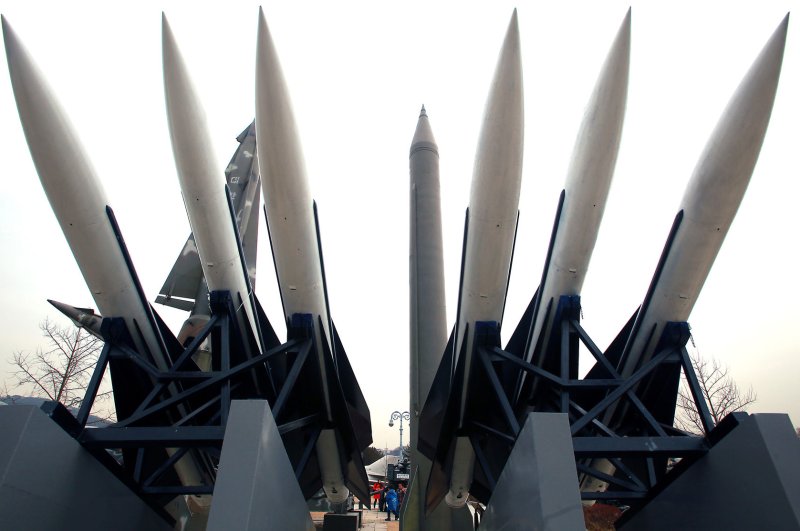American MIM-23 Hawk Missiles (Soviet Scud-B Ballistic Missile in background) are on display at the War Memorial of Korea in Seoul are on January 28, 2013. (UPI/Stephen Shaver) |
License Photo
WASHINGTON, Aug. 12 (UPI) -- North Korea's Punggye-ri Nuclear Test Site is at a virtual "standstill," a U.S. think tank reported Monday.
According to the U.S.-Korea Institute at Johns Hopkins' School of Advanced International Affairs, satellite imagery in July shows an absence of activity at the test site. Such diminished activity, the 38 North website observed, was a sharp contrast to the flurry of activity at the site this past spring that seemed to indicate a nuclear test would be conducted in late April.
Imagery of the South Portal tunnel entrances shows no activity, and analysis indicates: "The spoil pile has remained unchanged since May." The imagery shows some material near the east tunnel entrance, although "Its purpose remains unclear." SAIS speculated that the material could be "intended for finishing the tunnel walls or cabling to the test chamber."
Imagery analysis of the West Portal area shows a cessation of "major digging" since late May, "and no vehicles or activities in or around the portals since July." It is possible that digging at the third tunnel has been completed and it is now ready for testing.
Additional imagery shows: "There is no discernible activity at the Main Support Area where personnel and equipment are located prior to a detonation."
What does the lack of activity at North Korea's nuclear test site indicate?
SAIS concludes that "The meaning of this diminished activity remains unclear," but offers one theory: that North Korea has completed initial preparations for conducting its fourth nuclear test and is awaiting approval from Pyongyang to move forward with the test.
If the site is ready and the order is given, SAIS calculated that "based on past limited experience, it would take the North approximately six to eight weeks to conduct a detonation."















